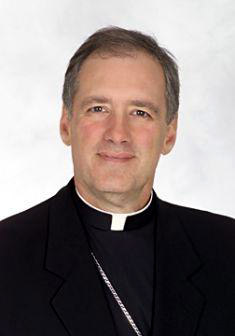Dan Savage, Rick Mercer, Adamo Ruggiero, JoeMyGod, change.org and even Perez Hilton were all chiming in on our story on the Halton Catholic District School Board’s (HCDSB) gay-straight alliance ban this weekend. And today the mainstream media followed suit.![]()
Not only did our report produce an unprecedented number of visitors to our site, but a petition and a Facebook page also sprang up in an effort to mobilize others to take action against the HCDSB’s decision.
In response to our article, the HCDSB posted a statement on its site Friday defending its decision and claiming a commitment to the promotion of “equity, inclusion and respect for the dignity of each human being in our system.”
The line is a nod to Ontario’s Equity and Inclusive Education Strategy, a policy all school boards in Ontario are required to comply with.
All members of the school community are to be treated with respect and
dignity. The strategy is helping educators across the province better
identify and remove discriminatory biases and systemic barriers to
student achievement. These barriers — related to racism, sexism,
homophobia and other forms of discrimination — may prevent some students
from reaching their full potential.
Below we’ve embedded the minutes from the November 2010 HCDSB meeting in which the board approved amendments to the ministry’s equity policy that not only banned gay-straight alliances, but also revised the section of the policy referring to learning materials and instructional strategies.
The minutes reveal it was a letter dated Jan 19, 2010, from Bishop Paul-Andre Durocher, chair
of the Education Commission of the Assembly of Catholic Bishops of
Ontario (ACBO), addressed to the HCDSB and all Catholic school boards
in Ontario, that led to the ban:
Whereas, Bishop Durocher explains that the ministry-proposed
“gay-straight alliances” or clubs, imply a self-identification with
sexual orientation that is often premature among high school students.
The bishop’s strategy: there is no violation of a policy prohibiting discrimination on the grounds of sexual orientation if you
claim high school students are too young to have a sexual orientation. No doubt heterosexual Halton students would be surprised to discover they’re too young to identify as straight (though many heterosexual students also have the benefit of being in a position to ignore the prescriptions of their educational institution’s religious patriarchs).
Before the board voted on the ban, Michael Pautler, the education director of the HCDSB, explained to board members that since the authors of the policy template were made aware of the bishop’s concerns back in January, they must have made changes to the final policy document, as it was approved by the ACBO. And though approval by the bishops implies accordance with Catholic teaching — they still proceed ruthlessly to ban GSAs.

Bishop Paul-Andre Durocher
Following the vote, the board amends a list of additional teaching resources provided by the policy that aim to “assist with the care of students experiencing same-sex attraction.” What do they add? Two resources in clear violation of the equity policy:
Teachers must consult the following: Section 2357 and 2358 (always
together) of the Catechism of the Catholic Church 1997. Letter to AllInvolved in Catholic Education – Church Teaching on Sexual Maturity
(Document 370303 Assembly of Catholic Bishops); and any other relevant
document fully and entirely consistent with the Doctrine of the Catholic
Church following: “…as reference and resource”
The Catechism of the Catholic Church, Section 2357 reads:
…tradition has always declared that “homosexual acts are intrinsically disordered.” They are contrary to the natural law. Under no circumstances can they be approved.
While the letter “to All Involved in Catholic Education” from the AOCB can be found on their site.
For most young people, romantic attachments and behaviour are part and parcel of their blossoming sexuality and their growth toward the commitment of marriage. Romantic attachments and behaviour are fully expected of heterosexual couples. Behaviour such as holding hands, embracing, kissing, dating and dancing that are romantically intended are all acceptable within appropriate limits.
AdvertisementIt will be especially difficult for young persons who are experiencing homosexual romantic yearnings to understand and accept this teaching of the Church since it discourages romantic behaviour that would be acceptable in a heterosexual context.
In other words, according to the Assembly of Catholic Bishops, (straight) high-school students’ self-identification with a sexual orientation isn’t “premature,” it’s “fully expected.” Yet, should a student express homosexuality instead of heterosexuality it’s to be condemned as unacceptable — again another document in violation of the Equity and Inclusion Education policy. And while the AOCB’s Church Teaching On Sexual Maturity acknowledges teen (hetero)sexuality — up to first base at least— and condemns homophobia, it also instructs the educator to prepare gay students for a “journey toward chastity.” So while some produce It Gets Better videos to give gay kids hope, the Ontario Catholic School Board has long been committed to it’s own counter-campaign: It Gets Abstinent.
The HCDSB’s decision to include the Catechism of the Catholic Church, the official text of the teaching of the Catholic Church and a document in clear violation of the Ontario Ministry of Education’s own Equity and Inclusion Education policy, might lead some to ask why the Ontario Separate School Board continues to receive public funding in the province. It’s a question other Catholic boards might’ve hoped to avoid by approving the policy without amendments that could attract the attention of the media.
Now, thanks to the Halton Catholic Board and Alice Anne LeMay’s inflammatory comments to Xtra, it’s a question many voters in Ontario will no doubt continue to ask in the months leading up to this year’s provincial election.
 Why you can trust Xtra
Why you can trust Xtra


